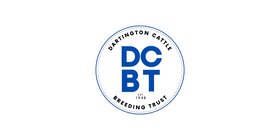Report Synopsis
Building Public Trust in British Farming Through Increased Transparency of Livestock Production
The UK farming industry is experiencing increased scrutiny from the general public, who are growing more concerned about issues such as animal welfare and the environmental impact of agricultural activity. The British public generally trusts farmers, sees them as experts and believes they care about their animals and the environment. However, a growing number of consumers are seeking food products that align with their values and want more information about how their food is raised.
Transparency is needed across sectors and systems, especially in intensive systems that are less understood and more likely to face criticism. Numerous voices in the UK have called for improved transparency at farm level. However, it is understandable that some may be hesitant to open their gates to the public out of fear or lack of resources. Nevertheless, if the gates stay firmly shut, the animal agriculture industry risks appearing secretive. And if the industry stays quiet when faced with tough questions, others will gladly fill the void with their own narratives.
Livestock agriculture is at serious risk of losing its ‘social license to operate’. The trust that most of the public have in the industry to produce food ethically is not guaranteed long-term. There are some standard practices (like cow-calf separation) that are seen by some as an inevitable threat to this. Gone are the days of guaranteed markets – shoppers now have (at least what they see as) equivalent alternatives to meat, dairy and fibre, and there’s a good chance that these will continue to improve in quality and become more accessible in the future.
This report is an overview of my learnings from dozens of visits, hours of conversation and several thousand miles of travel as I met with a diverse group of researchers, industry groups, communications and marketing experts, journalists, entrepreneurs and, of course, farmers. A few common threads emerged among people and organisations who have taken steps to open up to the public in one way or another:
- Dedication to authenticity and honesty by showing the ‘warts and all’ of food production or undertaking a philosophy of ‘Radical Openness’.
- Devoting resources to understanding and listening to the public, developing long-term strategy, measuring trust and other outcomes, and meeting targeted audiences where they already are.
- A commitment to sharing values, not facts, when engaging with audiences and abandoning the idea that we must ‘educate the public’.
- The value of (and need for) wider industry support of and investment in those willing to engage.
It is imperative that all of British agriculture - not just livestock farmers - embrace these principles as a first step toward protecting our social license to operate. If done effectively and authentically, we can add value to British produce and ensure that our industry can evolve in step with society, securing its future for generations to come.
Kendra Hall
Dartington Cattle Breeding Trust

AHDB

